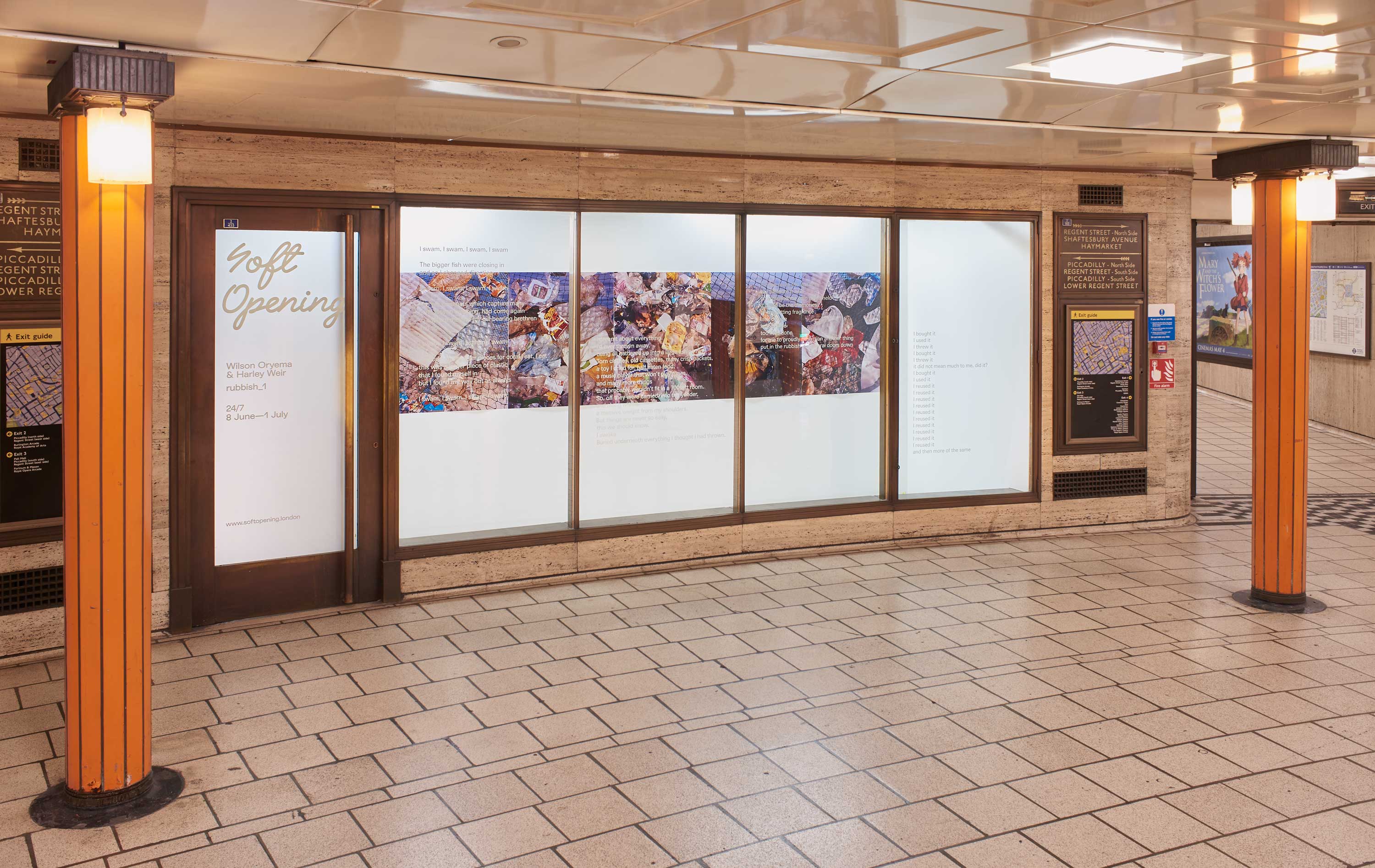Pollution brings a foul breeze
Since 2015, Harley Weir has digitally archived an expanding collection of photographs of trash. As the photographer travelled, the series became an obsessive amassment of imagery of detritus strewn across the globe. Eventually, Weir launched an Instagram account that over the course of the two years that followed, became an easy and temporarily satisfying outlet for this imagery. Before @rubbish_1 was hacked, deleted and since replaced with its latest version, @rubbish_1.2, it’s content was unforgivingly gruesome, publicising everything from rotting flowers still nestled in their shiny wrapping, to bottles filled with yellowing piss and worse. Emblematic of a growing concern with the impenetrable glut of plastic waste that we produce on a daily basis, Weir’s project soon began to implicate her own lifestyle. For Weir, photography represents her means to curiously learn about her surroundings and understand the world, so this ongoing series enables the artist to acknowledge her own footprint, alongside a clear agenda to generate a more widespread awareness about plastic waste.
Embodying a similar core ethos, Wilson Oryema’s poems seek to illuminate some of the underlying thought patterns which dominate and inform our habitual attitudes towards waste and consumption more generally. The pair first collaborated when Oryema archived for Weir, whose work soon began to inform his own artistic practice. Easily relatable, Oryema’s poems address how our problematic relationship with consumption infiltrates many of our daily behaviours, not only around waste but with food, clothing and other people. In his poem, “Consuming Relationships,” Wilson writes “Do you savour every aspect or eat hurriedly to start sooner on the next one?” Equally concerned with engendering awareness, Wilson proposes that the problem lies with the human condition rather than solely with the use of a single material. If we are to effect a change in our plastic wastage, we must begin with our own psychologies and consider our common repetitive behavioural patterns. Paired with Wilson’s words, this exhibition seeks to make evident how easy it would be for anybody to cut down
their plastic intake and begin to embolden a less wasteful lifestyle. It may be difficult to generate zero waste, but how hard can it really be to have some effect? Weir makes a convincing argument:
“People forget that doing every little helps… It’s important to start by changing one thing in your life: even simply by taking your groceries home from the supermarket without plastic bags. This way, during your lifespan alone you will save thousands of bags from being used and discarded. Repeating one positive action for a long time will save so much. Everyone making a little effort will make a difference, and together this can elicit such a huge change.”

